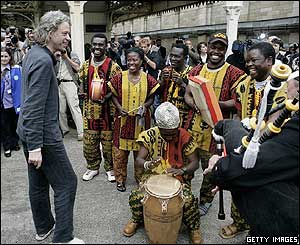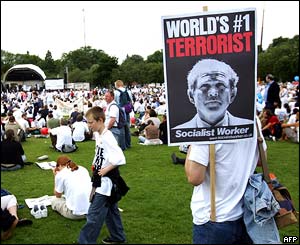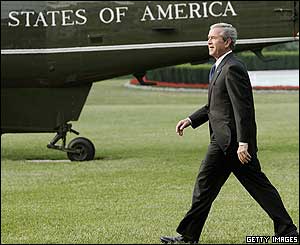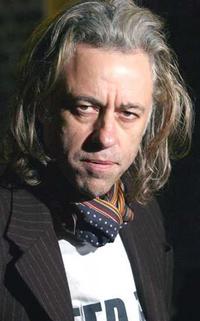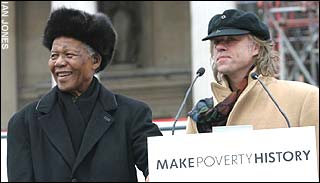
REV. MARTIN LUTHER KING JR. CIVIL RIGHTS MARCH ON WASHINGTON
Posted by Picasa

BEN KINGSLEY AS GHANDI IN THE FILM BY RICHARD ATTENBOROUGH
Posted by Picasa
Since I was discussing Henry David Thoreau & his essay " ON CIVIL DISOBEDIENCE "; I want to move on to the leader of the Civil Rights Movement in the United States from the 1950s to the late1960s Dr. Martin Luther King (1929-1968) .
Here is what King thought of Thoreau:
Martin Luther King, Jr., Acceptance Speech at Nobel Peace Prize Ceremony, 10 December 1964
"I became convinced that noncooperation with evil is as much a moral obligation as is cooperation with good. No other person has been more eloquent and passionate in getting this idea across than Henry David Thoreau. As a result of his writings and personal witness, we are the heirs of a legacy of creative protest." - Martin Luther King, Jr
And on non-violence & the influence Mahatma Ghandi had on him Dr. Martin Luther King JR. said:
"Prior to reading Gandhi, I had about concluded that the ethics of Jesus were only effective in individual relationships. The "turn the other cheek" philosophy and the "love your enemies" philosophy were only valid, I felt, when individuals were in conflict with other individuals; when racial groups and nations were in conflict, a more realistic approach seemed necessary. But after reading Gandhi, I saw how utterly mistaken I was.
Gandhi was probably the first person in history to lift the love ethic of Jesus above mere interaction between individuals to a powerful and effective social force on a large scale. Love for Gandhi was a potent instrument for social and collective transformation. It was in this Gandhian emphasis on love and nonviolence that I discovered the method for social reform that I had been seeking.
I do not want to give the impression that nonviolence will work miracles overnight. When the underprivileged demand freedom, the privileged first react with bitterness and resistance. Even when the demands are couched in nonviolent terms, the initial response is the same. So the nonviolent approach does not immediately change the heart of the oppressor. It first does something to the hearts and souls of those committed to it. It gives them new self-respect; it calls up resources of strength and courage that they did not know they had. Finally, it reaches the opponent and so stirs his conscience that reconciliation becomes a reality. "
"Nonviolence is not sterile passivity, but a powerful moral force which makes for social transformation. Sooner or later, all the peoples of the world will have to discover a way to live together in peace, and thereby transform this pending cosmic elegy into a creative psalm of brotherhood. If this is to be achieved, man must evolve for all human conflict a method which rejects revenge, aggression, and retaliation. The foundation of such a method is love."
From the website;
The Martin Luther King, Jr. Papers Project
A collection of primary and secondary documents pertaining to Martin Luther King, Jr., held at Stanford University.
www.stanford.edu/group/King/
"Pilgrimage to Nonviolence."
Here is a little bio of Dr. King:
1956-62 Dr. Martin Luther King Jr. establishes himself as the national leader of the civil rights movement, leading boycotts and staging protests against segregation in the South.
1963-65 Voting rights becomes the focus of King and other civil-rights leaders. They organize protests across the nation, bringing more attention to their efforts - and more violent responses from opponents.
1966-68 King's opposition to the Vietnam War makes headlines while his battle for civil rights continues. But on April 4, 1968, an assassin's bullet ended his crusade.
from the Seattle Times July 9, 2005
seattletimes.nwsource.com/mlk/
And as Professor Melvin Sylvester of Long Island University puts it as he praises Dr. King as a great American:
" In his short life, Martin Luther King was instrumental in helping us realize and rectify those unspeakable flaws which were tarnishing the name of America. The events which took place in and around his life were earth shattering, for they represented an America which was hostile and quite different from America as we see it today.
Martin Luther King, Jr. catapulted to fame when he came to the assistance of Rosa Parks, the Montgomery, Alabama Black seamstress who refused to give up her seat on a segregated Montgomery bus to a White passenger. In those days American Blacks were confined to positions of second class citizenship by restrictive laws and customs. To break these laws would mean subjugation and humiliation by the police and the legal system. Beatings, imprisonment and sometimes death were waiting for those who defied the System.
Black Americans needed a Martin Luther King, but above all America needed him. The significant qualities of this special man cannot be underestimated nor taken for granted. Within a span of 13 years from 1955 to his death in 1968 he was able to expound, expose, and extricate America from many wrongs. His tactics of protest involved non-violent passive resistance to racial injustice. It was the right prescription for our country, and it was right on time. Hope in America was waning on the part of many Black Americans, but Martin Luther King, Jr. provided a candle along with a light. He also provided this nation with a road map so that all people could locate and share together in the abundance of this great democracy. "
See website:
A Tribute to Dr. Martin Luther King, Jr.
Long Island University professor examines the impact of King's life on all Americans. Includes images, chronology of King's life and lengthy bibliography.
www.liu.edu
On Mahatma Ghandi see:
MAHATMA GANDHI ONE SPOT COMPLETE INFORMATION WEBSITE
MKGandhi, mahatma, Philosophy, non-violence, photographs of mahatma gandhi,
www.mkgandhi.org
Mahatma Gandhi Album: Gandhi: A Biography
... debt to the teachings of Christ and to the 19th-century American writer Henry
David Thoreau, especially to Thoreau's famous essay "Civil Disobedience. ...
www.kamat.com/mmgandhi
More on Mahatma Ghandi later.
Anyway bye for now,
GORD.
